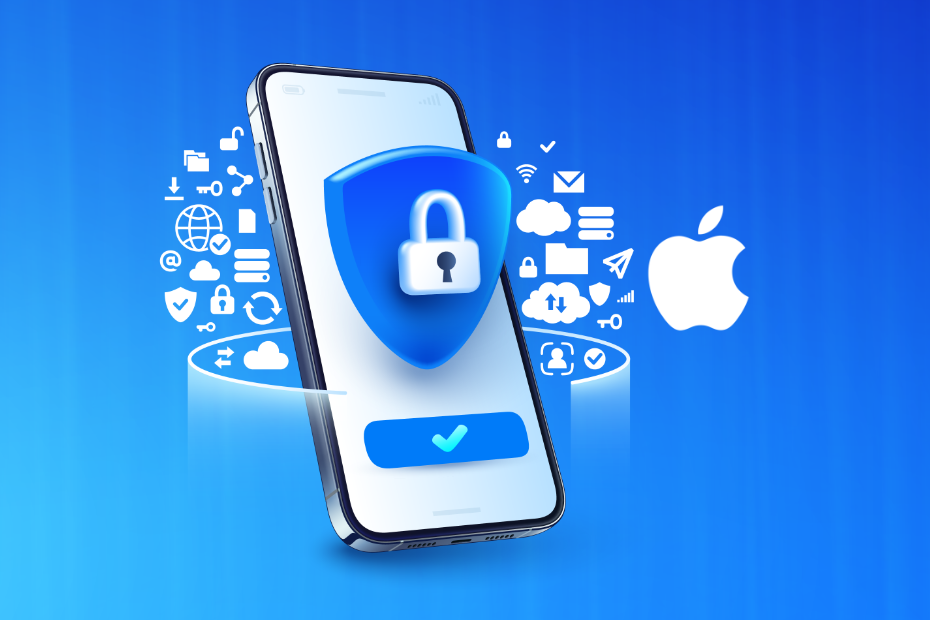
When Apple first came up with the idea of ‘privacy labels’ at their Worldwide Developers Conference (WWDC) in 2020, Apple developers weren’t exactly excited. The idea of giving up what data their apps collect, what they have access to, and what they do with it in the form of labels was something they weren’t accustomed to. They were more content with a privacy policy that was made up of lengthy, indiscernible blocks of text that nobody understood or could be bothered to read and ask questions about.
It was a big win for app users as it meant that they now knew which app to blame when they’re constantly hounded with cat food ads. They know of a suspicious app when it has no business accessing their contacts and photos, yet still asks for permission.
Read on: The Mobile App Development Trends To Watch In 2022
How privacy labels will affect mobile app development
Privacy labels are more likely to affect you if this is your first time publishing an app on the App Store, or if you haven’t updated your app in a year or so. If you updated your app some time ago, then you’re already past the most tedious part which is filling out the privacy labels that’ll appear on your app listing. Once you’re past that step, it’s an easy journey towards consequent updates unless Apple brings something major to next year’s WWDC.
Privacy labels for new and dormant mobile app developers
Since every app listed on the App Store is supposed to carry privacy labels, the same applies for developers that are trying to publish on the App Store for the first time. The type of collectable data privacy labels can mention include purchases, financials, location, contact info, history, identifiers, etc. Apple asks for three sets of information regarding the data your apps are collecting:
1. Data not linked to you
Any data collected from a device by means of your app that cannot be used to identify the device owner. For example, your app may collect usage data but ditches identifiers such as the device’s serial number or the user’s phone number. Your users will appreciate your app if you tend to collect data only when it’s required and ditch personally identifiable information (PII) whenever possible.
2. Data used to track you
Any data collected from the device by your app that may be used to track the device owner across 3rd party apps and websites.
3. Data linked to you
Any data collected from the device by your app that’s an active identifier, such as a phone number or email or contains an identifier, such as a serial number.
Privacy labels can also show where the data might be used:
1. Third-party advertising
If you use the data you collected via your apps to run adverts on a third-party advertisement network, then you must declare the data you’re going to share with the advertisement network.
2. Developer’s advertising or marketing
If in addition to an external ad network you also have your own ad network, you must specify the information you share with it.
3. Analytics
If you track your app usage via an external analytics engine such as Google Analytics, then you must mention the type of data the engine has access to.
4. Product personalization
Personalization improves the experience your users have with the app. But personalization takes their data into account. If you’re using their data to make the app appear more personalized, then you must mention the data that’s required to personalize the app.
5. App functionality
Some of the app’s functionality cannot work without access to a certain set of data. For example, Uber cannot work without knowing data regarding your location. If certain data is required in order to make all the app’s features available, be sure to mention this on the label.
6. Other purposes
If there’s another purpose in addition to the ones mentioned above, you must enter it in this section.
Privacy labels for existing mobile app developers
Just because you’re done filling out your app’s privacy labels doesn’t mean you don’t have to do anything else. There are a number of steps you can take to make your app appear more privacy centric:
1. Shorten the list
Go through the privacy labels at the time of update and see what you can ditch without making a dent. A shorter list always looks better. If your app’s privacy labels spread across multiple pages, then there’s something unusual about your company. For registration, you can do with the name and email address and don’t need a physical address or phone number.
2. Lower PII intake
Not every type of data you collect needs to have PII attached to it. You can run analytics with non-PII data too.
3. Fill missing information
There’s always a chance that you failed to declare a type of data that you’re collecting. That’s why you should check the list before and after an update for any missing piece of information.
4. Reach out
Reach out to your customers with how you’re taking the new privacy labels. You can go one step further and explain why you collect the data, its purpose, and why it’s important.
5. Respond
Since everything that you collect of your user is easily readable, you may receive a lot of queries regarding why you’re collecting this data, why this data has to contain personally identifiable information, etc. You need to respond and train your support staff on how to handle these queries. You may think of doing a privacy training session so that they understand what you do and why you do it.
Read on: 10 Essential Tips For Choosing The Best Mobile App Development Company
Rare Crew is a privacy centric software and mobile development firm that helps organizations make incredible apps that does not compromise the privacy of their users.
